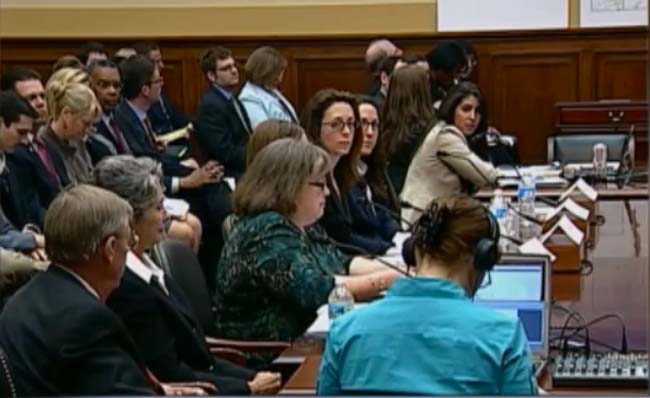
But things changed in January, after ABC ran its report exposing the extent of sexual assault against Peace Corps volunteers. Suddenly, everyone became concerned about my safety, to the point that headquarters reviewed my incident history and told me I had 24 hours to pack my things and leave. Back in America, I felt crushed. Yet I was also relieved that the Peace Corps had finally turned its mixed messages into decisive action, regardless of the image concerns that prompted it. The reconsideration is long overdue, since volunteers tend to support the Peace Corps until the end. If I had been raped and the Peace Corps had told me it was my fault for not following safety protocol, I might well have believed them. All posts need to adopt such open policies. Without full and honest disclosure of sexual assaults from each post and from the agency as a whole, female volunteers cannot be sent out in good conscience. Headquarters should consider a universal policy to investigate, and even block, sending female volunteers to sites or countries with assault rates above a certain level. Female volunteers need to know that their lives will be dangerous, and they need to know just how dangerous their posts will be. They need the chance to say no, and the belief that, when they say it, their voices will be heard all the way back to Washington.
Kyrgyzstan RPCV Jia Tolentino writes: My ultimately positive experience points to ways the agency can reform and in many ways already has
Volunteers and Victims
By JIA TOLENTINO
Published: May 13, 2011
THIS week, in the wake of accusations that the Peace Corps had mishandled the startling number of sexual assaults against its volunteers over the last decade, Congress invited former participants to tell their side of the story.
In many cases, their tales were horrifying - not only of rapes and attempted rapes, but also of the Corps's efforts to play down or ignore them, as well as the risks involved in certain country assignments.
Many echoed comments by volunteers interviewed for an ABC News report in January. Karestan Koenen, who was raped in 1991 in Niger, said, "My own experience was that the treatment by the Peace Corps was worse than the rape."
As a recent Peace Corps volunteer whose service in Kyrgyzstan ended early because of sexual harassment, I sympathize with Ms. Koenen. My ultimately positive experience points to ways the agency can reform, however, and in many ways already has.
From 2000 to 2009 more than 1,000 Peace Corps volunteers reported sexual assaults, including 221 rapes or attempted rapes - a number that is doubtless too low. Under the anonymous reporting process at our small post in Kyrgyzstan, two to three volunteers reported a rape or attempted rape each year.
I landed in Kyrgyzstan last April, a week before the government was overthrown. My group's introduction to that unforgettable country consisted of evacuations and lockdowns amid endless training: wash all vegetables, exercise for happiness and never go to the clubs on the Embassy blacklist. Much of the training centered on how female volunteers could avoid rape.
As I imagine is typical in all Peace Corps posts, we yawned through our safety sessions, aching to work. The training, though extensive, seemed facile. Ultimately, no behavioral code could ward off rape; try as we might to walk in lighted places, our primary offense in the case of an assault would simply, as always, be that of being female.
Once in my remote village, I grew used to men telling me they would make me their wives - they would kidnap me, they joked, as was the custom. I notified the Peace Corps after a few unpleasant incidents; it instantly offered me a site change. I refused, as I felt invested in the children I was teaching and the library I was building.
In the summer, I broke a Peace Corps rule and was grounded to my village for two months, a dangerous punishment in a village full of unemployed, drunk men. One day my host father kissed me. When I reported it, the Peace Corps pulled me in for a talk with a doctor and then sent me back to complete my punishment.
In the winter, I was grounded again, this time for not sending a required text message. After a dozen minor incidents - being grabbed, being followed - I appealed, but the punishment stayed.
But things changed in January, after ABC ran its report exposing the extent of sexual assault against Peace Corps volunteers. Suddenly, everyone became concerned about my safety, to the point that headquarters reviewed my incident history and told me I had 24 hours to pack my things and leave.
Back in America, I felt crushed. Yet I was also relieved that the Peace Corps had finally turned its mixed messages into decisive action, regardless of the image concerns that prompted it. The reconsideration is long overdue, since volunteers tend to support the Peace Corps until the end. If I had been raped and the Peace Corps had told me it was my fault for not following safety protocol, I might well have believed them.
Likewise, the women interviewed by ABC and testifying before Congress want to change the Peace Corps, not tear it down. Like them, I believe that the agency is absolutely able to make decent and compassionate changes to its handling of volunteer safety.
That was certainly the case at my post in Kyrgyzstan. It conscientiously reported all sexual assaults, and just as important, created an atmosphere where we knew we could be honest about sexual assaults.
All posts need to adopt such open policies. Without full and honest disclosure of sexual assaults from each post and from the agency as a whole, female volunteers cannot be sent out in good conscience. Headquarters should consider a universal policy to investigate, and even block, sending female volunteers to sites or countries with assault rates above a certain level.
Female volunteers need to know that their lives will be dangerous, and they need to know just how dangerous their posts will be. They need the chance to say no, and the belief that, when they say it, their voices will be heard all the way back to Washington.
Jia Tolentino writes the blog The Best Little Bookshelf in Texas.














